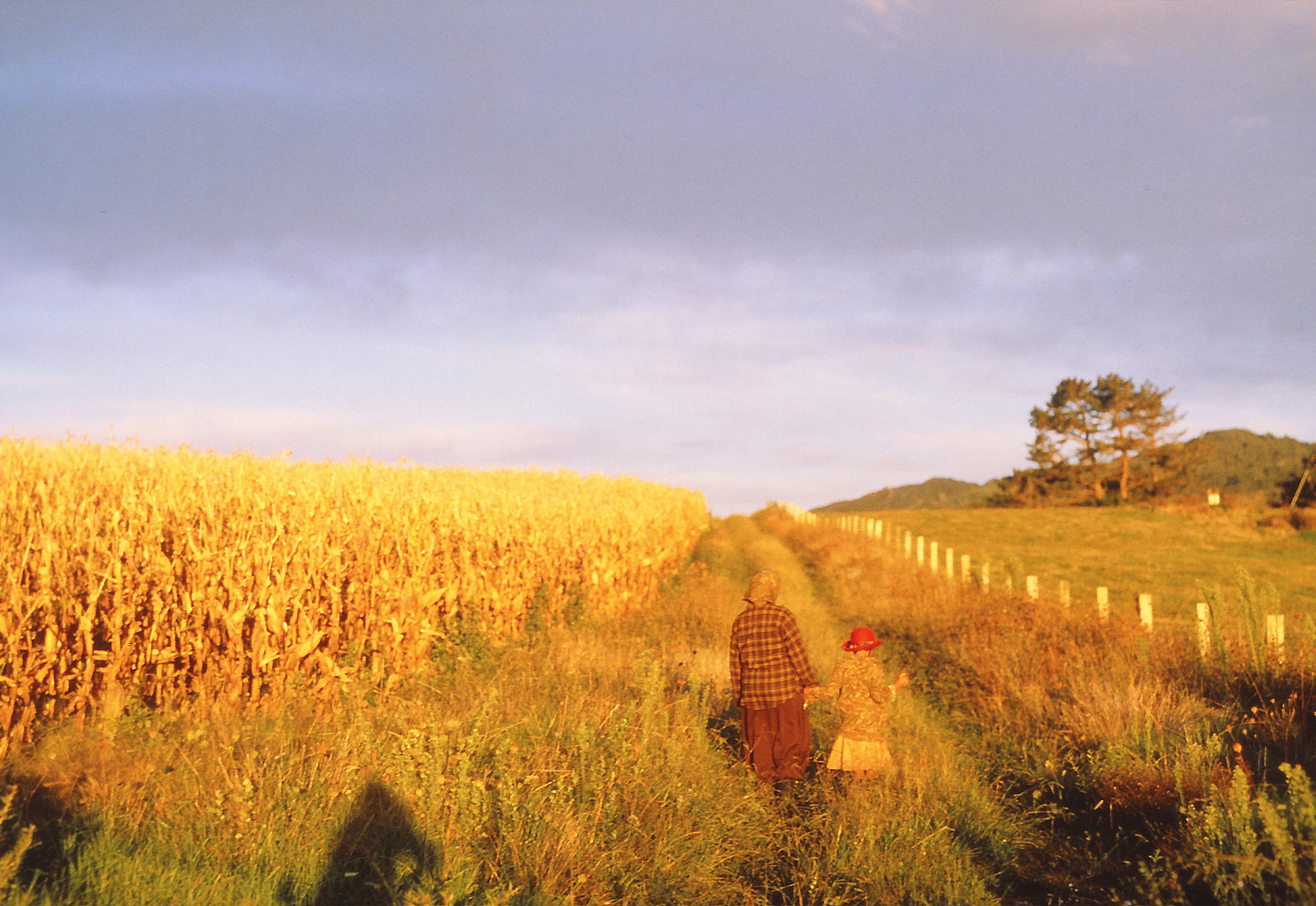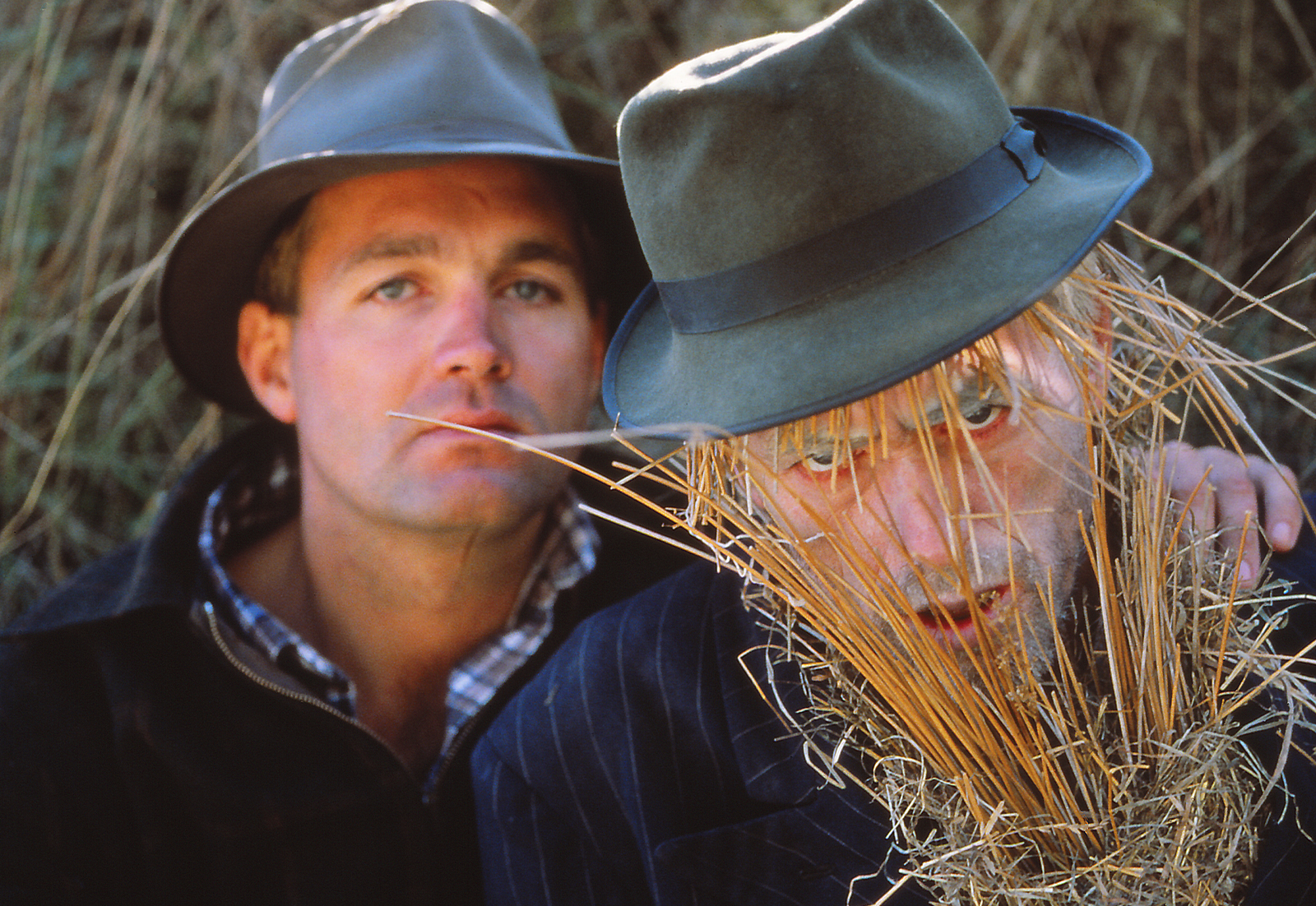MAURI



4:15PM, Friday May 1
Ritz Cinemas, Randwick
Director: Merata Mita
Country: Aotearoa/New Zealand
Year: 1988
Runtime: 101 minutes
Language: English, Māori, with English subtitles
Format: Colour, 2K DCP (originally 35mm)
Rating: MA15+
Ritz Cinemas, Randwick
Director: Merata Mita
Country: Aotearoa/New Zealand
Year: 1988
Runtime: 101 minutes
Language: English, Māori, with English subtitles
Format: Colour, 2K DCP (originally 35mm)
Rating: MA15+
Single tickets on sale soon. Get a subscription to the full program now ⟶
The first feature directed by a Maori woman, Merata Mita’s ground-breaking debut feature was selected for screening in the Restored Classics program at Venice in 2019.
It tells the story of Rewi, haunted by a past which threatens to engulf his future. Mauri (meaning “life force”), is loosely set around a love triangle and explores cultural tensions, identity, and changing ways of life in a dwindling East Coast town in New Zealand.
Source: New Zealand Film Commission
Notes by Lindsay Shelton:
Merata Mita
Merata Mita (1942 – 2010) [Ngāti Pikiao, Ngāi Te
Rangi] was
one of New Zealand’s first Maori film-makers. For more than ten years she was a
teacher in rural New Zealand communities, using film and video to reach
difficult students. After working as a Maori liaison officer on three
television productions, she set out to learn how to make her own films, saying
she was fed up with filmmakers “putting Maoris under the microscope and
misrepresenting them.” She then co-directed a number of documentaries including
several about trade unions. For two
years she researched and then presented a Maori news show on television which
she found “often bitter and demoralising”.
In 1978, with Leon Narbey and Gerd Pohlmann, she co-directed a short documentary Bastion Point Day 507 about the eviction of Maori land rights campaigners who had been occupying land in Auckland for more than 500 days. Lack of money delayed completion of the film till 1980, when it won the Special Jury Prize at the Oberhausen Film Festival.
She then became the first Maori – and the first New Zealand woman - to direct (and produce) a feature-length documentary - Patu(1983) is a powerful and intense account of the nationwide protests which brought violence between demonstrators and police during a 1981 New Zealand rugby tour from apartheid-era South Africa. Its unique importance was that it was a Maori critique of the state’s heavy-handed response to the protests, at a time when documentaries were not expected to have a point of view at all. Film historian Roger Horrocks has written that Patuestablished Merata Mita’s reputation as a major New Zealand filmmaker. It won the International Students’ Prize at the Leipzig Festival, and the MRAP Prize at the Anti-Racist Film Festival in Amiens.
Five years later she was the first Maori woman to be sole director and writer of a dramatic feature – Mauri, on which she was also producer. (In 1972 a Maori woman, Ramai Hayward, had co-directed the feature To Love A Maori, with her Pākehā husband Rudall.)
Merata Mita became an influential leader in the development of indigenous film-making. She set up the indigenous filmmaking programme at the University of Hawai'i Mānoa. She became an assistant professor there, teaching indigenous screenwriting, aesthetics and production. In 1996 she was awarded the Leo Dratfield Lifetime Achievement Award for documentary, by the Robert Flaherty Foundation. She hosted workshops and spoke on panels about indigenous filmmaking in many countries, and in 2005 was a key player in the launch of the Hawaiian indigenous peoples' festival, the Hawai'inuiakea Native Film Showcase.
In 2001 she directed a feature-length documentary on the great New Zealand painter Ralph Hotere (who was production designer for Mauri).
In 2004 she executive produced The Land Has Eyes, the first feature directed by a native Fijian.
In 2010 she was co-producer on Taika Waititi’s hit feature Boy.Her final documentary feature was Te Whakarauora Tangata, a film about male violence in Maori communities, which was released after her death.
In 2018 her film archivist son Hepi (whose father is Geoff Murphy) made a documentary feature about his mother, titled Merata: How Mum Decolonised the Screen.
In 1978, with Leon Narbey and Gerd Pohlmann, she co-directed a short documentary Bastion Point Day 507 about the eviction of Maori land rights campaigners who had been occupying land in Auckland for more than 500 days. Lack of money delayed completion of the film till 1980, when it won the Special Jury Prize at the Oberhausen Film Festival.
She then became the first Maori – and the first New Zealand woman - to direct (and produce) a feature-length documentary - Patu(1983) is a powerful and intense account of the nationwide protests which brought violence between demonstrators and police during a 1981 New Zealand rugby tour from apartheid-era South Africa. Its unique importance was that it was a Maori critique of the state’s heavy-handed response to the protests, at a time when documentaries were not expected to have a point of view at all. Film historian Roger Horrocks has written that Patuestablished Merata Mita’s reputation as a major New Zealand filmmaker. It won the International Students’ Prize at the Leipzig Festival, and the MRAP Prize at the Anti-Racist Film Festival in Amiens.
Five years later she was the first Maori woman to be sole director and writer of a dramatic feature – Mauri, on which she was also producer. (In 1972 a Maori woman, Ramai Hayward, had co-directed the feature To Love A Maori, with her Pākehā husband Rudall.)
Merata Mita became an influential leader in the development of indigenous film-making. She set up the indigenous filmmaking programme at the University of Hawai'i Mānoa. She became an assistant professor there, teaching indigenous screenwriting, aesthetics and production. In 1996 she was awarded the Leo Dratfield Lifetime Achievement Award for documentary, by the Robert Flaherty Foundation. She hosted workshops and spoke on panels about indigenous filmmaking in many countries, and in 2005 was a key player in the launch of the Hawaiian indigenous peoples' festival, the Hawai'inuiakea Native Film Showcase.
In 2001 she directed a feature-length documentary on the great New Zealand painter Ralph Hotere (who was production designer for Mauri).
In 2004 she executive produced The Land Has Eyes, the first feature directed by a native Fijian.
In 2010 she was co-producer on Taika Waititi’s hit feature Boy.Her final documentary feature was Te Whakarauora Tangata, a film about male violence in Maori communities, which was released after her death.
In 2018 her film archivist son Hepi (whose father is Geoff Murphy) made a documentary feature about his mother, titled Merata: How Mum Decolonised the Screen.
The Film
Mauri was the first time that a full Maori
perspective had been seen on the cinema screen. It is the tale of an old woman
who is a spiritual healer (played by Eva Rickard, a leading Maori land rights activist)
and a man with a secret identity (played by Anzac Wallace, a Maori trade unionist
who made his name as an actor in the lead role in Geoff Murphy’s 1983 feature Utu in which Mita also acted.) Geoff
Murphy, then Mita’s partner, was associate producer of Mauri and also played the part of a racist farmer.
Its New Zealand premiere was at the Wellington Film Festival, where festival director Bill Gosden wrote:
Disconcertingly, Mauri’s central theme of birthright is most thoroughly expressed through a man whose claim on it is insecure. The true nature of his spiritual transgression is the secret that is held in suspense until the end and gives the film its peculiar edginess …. Female power in the film is not so clouded. Eva Rickard as Kara represents the ideals of Maori woman’s courage, wisdom and harmony with the natural world to perfection; her performance is richly informed by her own great personal mana. She calmly dominates the film as she imparts a sense of their mauri, their life-force, to the troubled younger characters, and it may be hoped to us as well.
When her film got some negative reviews after its New Zealand festival screenings, Mita spoke of Pākehā reviewers who were "not qualified to assess it". She asked not that people liked Mauri, but that they view it with an open mind. Mita said she had rejected Pākehā traditions of storytelling and embraced a layered approach, in keeping with the strongly oral traditions of Māori.
Her own description of the film:
Mauri is the story of a man who reclaims his spirituality. Rewi is haunted by a past which threatens to engulf his future. However, his relationships with two women set him on the road to redemption. The elder, Kara, he loves as earth mother and spiritual healer. The younger, Ramari, is a beautiful headstrong woman with whom he shares a volatile sexual attraction … The story is set among the colourful characters of a once thriving settlement, upon whom the encroachment of Europeans spells disaster… Mauri starts with birth, ends with death, and is about life.
Its New Zealand premiere was at the Wellington Film Festival, where festival director Bill Gosden wrote:
Disconcertingly, Mauri’s central theme of birthright is most thoroughly expressed through a man whose claim on it is insecure. The true nature of his spiritual transgression is the secret that is held in suspense until the end and gives the film its peculiar edginess …. Female power in the film is not so clouded. Eva Rickard as Kara represents the ideals of Maori woman’s courage, wisdom and harmony with the natural world to perfection; her performance is richly informed by her own great personal mana. She calmly dominates the film as she imparts a sense of their mauri, their life-force, to the troubled younger characters, and it may be hoped to us as well.
When her film got some negative reviews after its New Zealand festival screenings, Mita spoke of Pākehā reviewers who were "not qualified to assess it". She asked not that people liked Mauri, but that they view it with an open mind. Mita said she had rejected Pākehā traditions of storytelling and embraced a layered approach, in keeping with the strongly oral traditions of Māori.
Her own description of the film:
Mauri is the story of a man who reclaims his spirituality. Rewi is haunted by a past which threatens to engulf his future. However, his relationships with two women set him on the road to redemption. The elder, Kara, he loves as earth mother and spiritual healer. The younger, Ramari, is a beautiful headstrong woman with whom he shares a volatile sexual attraction … The story is set among the colourful characters of a once thriving settlement, upon whom the encroachment of Europeans spells disaster… Mauri starts with birth, ends with death, and is about life.
Full film details:
The Restoration
The restoration was prepared by the New Zealand Film
Commission.
The 35mm Inter-positive was scanned on an Arri film scanner at 2K resolution. Following that, the film went through a stabilization and de-flicker process before a number of restoratin tools were used for grain and noise reduction. The process, including the creation of a 2K DCP, was overseen by the film’s cinematographer Graham Cowley.
When first released the film won a prize at the Rimini Film Festival in Italy. In 2019 the film was nominated for the Venezia Classici Award for Best Restored Film at the Venice Film Festival. Her son Hepi commented:
“When Mauri was released in 1988 no one could have predicted that more than 30 years later the film would still stand alone as the only feature film written and directed by a Māori woman. When contextualised in this way, the significance of Mauri intensifies, and its inclusion within this prestigious Venice programme is validation of Mauri’s place in cinema history. But at a personal level for our family, this invitation represents the vindication of our mother’s struggle to break through the barriers of prejudice. And we hope that the ongoing recognition of her work may inspire others to continue that struggle.”
Dir/Prod/Scr: Merata MITA | Prod Co: Awatea Films in association with the New Zealand Film Commission and Radio Hauraki | Assoc Prod: Geoff MURPHY | Phot: (35mm colour) Graeme COWLEY | Musical director: Hirini MELBOURNE| Original music composed and performed by AMOHURA | Female vocalist: Te Rita PAPESCH | Prod Des: Ralph HOTERE | Sound: Gethin CREAGH
Cast: Anzac WALLACE (Rewi), Eva RICKARD (Kara), James HEYWARD (Steve), Susan D. RAMARI-PAUL (Ramari), Sonny WARU (Hemi), Rangimarie DELAMARE (Awatea), Willie RAANA (Willie), Geoff Murphy (Mr SEMMENS), Don SELWYN (old cop), Temuera MORRISON (young cop), Ana Hine Ara Kura THRUPP (Hinemoa), Anthony ANGELL (Tawa). Elders and extras: Te Whanau a Apanui.
The 35mm Inter-positive was scanned on an Arri film scanner at 2K resolution. Following that, the film went through a stabilization and de-flicker process before a number of restoratin tools were used for grain and noise reduction. The process, including the creation of a 2K DCP, was overseen by the film’s cinematographer Graham Cowley.
When first released the film won a prize at the Rimini Film Festival in Italy. In 2019 the film was nominated for the Venezia Classici Award for Best Restored Film at the Venice Film Festival. Her son Hepi commented:
“When Mauri was released in 1988 no one could have predicted that more than 30 years later the film would still stand alone as the only feature film written and directed by a Māori woman. When contextualised in this way, the significance of Mauri intensifies, and its inclusion within this prestigious Venice programme is validation of Mauri’s place in cinema history. But at a personal level for our family, this invitation represents the vindication of our mother’s struggle to break through the barriers of prejudice. And we hope that the ongoing recognition of her work may inspire others to continue that struggle.”
Dir/Prod/Scr: Merata MITA | Prod Co: Awatea Films in association with the New Zealand Film Commission and Radio Hauraki | Assoc Prod: Geoff MURPHY | Phot: (35mm colour) Graeme COWLEY | Musical director: Hirini MELBOURNE| Original music composed and performed by AMOHURA | Female vocalist: Te Rita PAPESCH | Prod Des: Ralph HOTERE | Sound: Gethin CREAGH
Cast: Anzac WALLACE (Rewi), Eva RICKARD (Kara), James HEYWARD (Steve), Susan D. RAMARI-PAUL (Ramari), Sonny WARU (Hemi), Rangimarie DELAMARE (Awatea), Willie RAANA (Willie), Geoff Murphy (Mr SEMMENS), Don SELWYN (old cop), Temuera MORRISON (young cop), Ana Hine Ara Kura THRUPP (Hinemoa), Anthony ANGELL (Tawa). Elders and extras: Te Whanau a Apanui.
